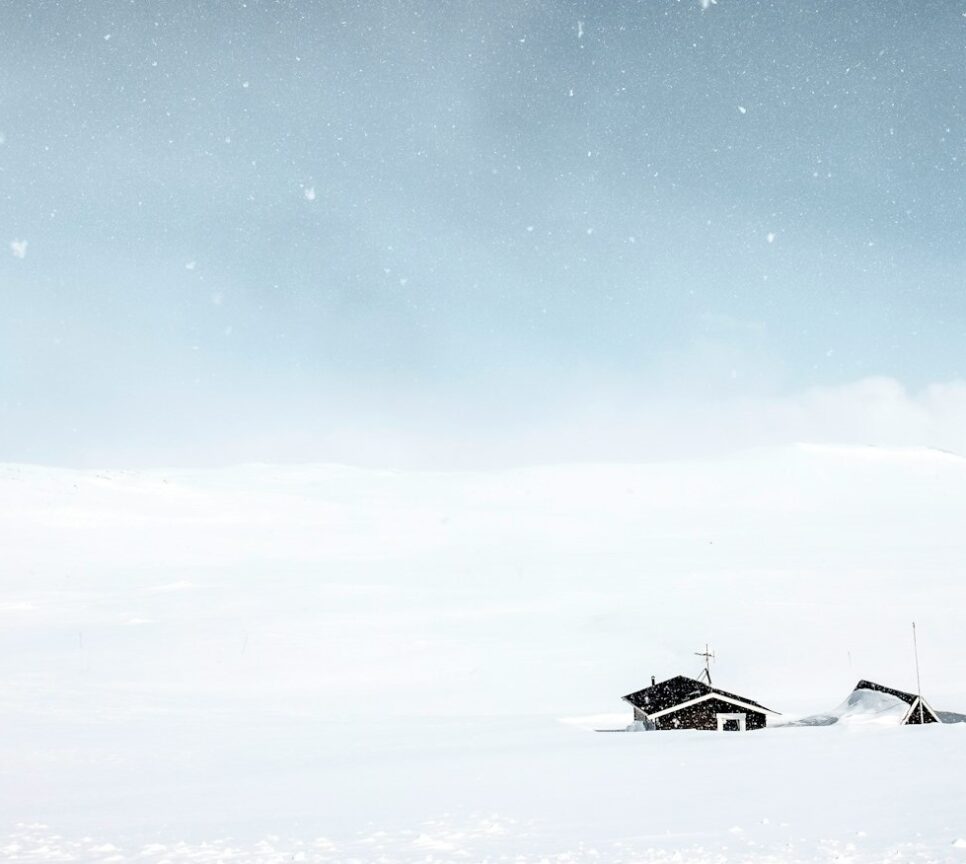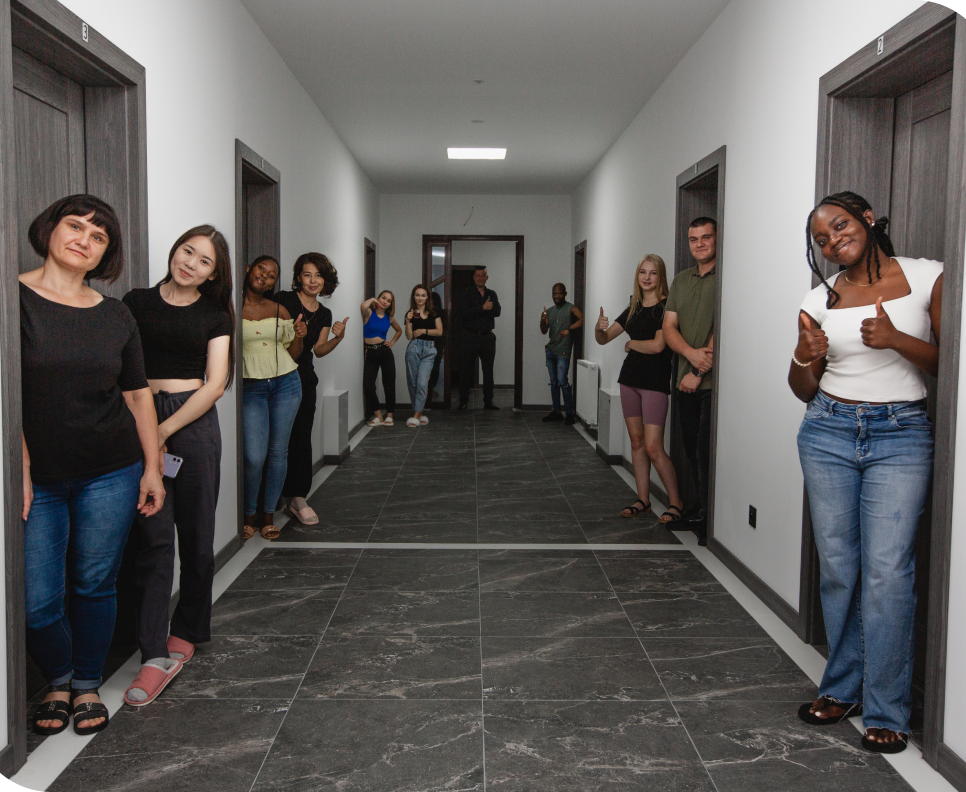Planning to live or work in Poland? Learning even basic Polish can make you stand out. Poles appreciate when foreigners try to speak their language – even a few simple words can make a difference.
In Poland, the way you speak depends on the situation. At a store or office, you’ll say “dzień dobry” (jen dob-ri), but among friends, you’ll use “cześć” (cheshch). It’s also worth remembering polite forms like “Pan” and “Pani” (pahn, pah-nee), which show respect in formal situations.
In this article, you’ll find a list of essential phrases, slang, fun facts, and tips to help you understand Poles and their language. Ready? Let’s get started!
Formal or Informal – How Not to Make a Faux Pas
When to say “dzień dobry” and when to say “cześć”?
“Dzień dobry” (jen dob-ri) is a universal formal phrase – perfect for work, shops, or offices.
“Cześć” (cheshch) is used in informal settings, like among friends.
Never say “cześć” to older people in formal situations – it might be seen as disrespectful.
Polite Forms:
In Poland, “Pan” and “Pani” (pahn, pah-nee) are important in conversations with strangers or in official contexts:
“Czy Pan może mi pomóc?” (chee pahn moh-zhe mee poh-mooch) – Can you help me? (formal).
“Czy mogę zapytać?” (chee moh-geh zah-pih-tach?) – Can I ask a question?
Fun fact: Poles often switch to informal “ty” at work or in social settings, but only with mutual agreement. You might hear “Przejdźmy na ty” (psheych-mih nah tih) – a sign the relationship is becoming less formal.
Essential Phrases – Your Survival Toolkit
Basic Phrases:
Tak (tahk) – Yes.
Nie (nyeh) – No.
Dziękuję (jen-koo-ye) – Thank you.
Proszę (proh-sheh) – Please / You’re welcome.
Przepraszam (psheh-prah-shahm) – Sorry / Excuse me.
Cześć (cheshch) – Hi / Hello.
Dzień dobry (jen dob-ri) – Good morning / Good day.
Do widzenia (doh vee-dzeh-nya) – Goodbye.
Gdzie (gd-yeh) – Where.
Ile (ee-leh) – How much / How many.
Co (tsoh) – What.
Kto (ktoh) – Who.
Kiedy (kyeh-dih) – When.
Jak (yahk) – How.
Dlaczego (dlah-cheh-goh) – Why.
Dobrze (dob-zheh) – Good / Well.
Źle (zhleh) – Bad / Poorly.
Może (moh-zheh) – Maybe.
Tak, tak (tahk, tahk) – Yes, yes (common way to agree).
Nie wiem (nyeh vyehm) – I don’t know.
Rozumiem (roh-zoo-myehm) – I understand.
Nie rozumiem (nyeh roh-zoo-myehm) – I don’t understand.
Teraz (teh-rahz) – Now.
Potem (poh-tem) – Later.
Dziś (jeesh) – Today.
Jutro (yoo-troh) – Tomorrow.
Woda (voh-dah) – Water.
Jedzenie (yeh-dzeh-nyeh) – Food.
Pomoc (poh-mots) – Help.
Miło mi (mee-woh mee) – Nice to meet you.
Sample Sentences:
Dzień dobry (jen dob-ri) – Good morning / Good day.
Cześć, jak się masz? (cheshch, yahk shyeh mash) – Hi, how are you?
Dziękuję, dobrze. A Ty? (jen-koo-ye dob-zheh. ah tih) – Thank you, good. And you?
Nie mówię po polsku (nyeh moo-veh poh pol-skoo) – I don’t speak Polish.
Czy mówisz po angielsku? (chee moo-veesh poh ahn-giel-skoh) – Do you speak English?
Gdzie jest łazienka? (gd-yeh yest wah-zhen-kah) – Where is the restroom?
Poproszę kawę z mlekiem (poh-proh-sheh kah-veh z mleh-kyem) – I would like coffee with milk.
Ile to kosztuje? (ee-leh toh koh-shtoo-yeh) – How much does it cost?
Czy mogę zapłacić kartą? (chee moh-geh zap-lah-cheech kar-tohn) – Can I pay with a card?
Przepraszam, nie rozumiem (psheh-prah-shahm, nyeh roh-zoo-myehm) – Sorry, I don’t understand.
Pomocy! (poh-moh-tsih) – Help!
Na zdrowie! (nah zdroh-vyeh) – Cheers! / Bless you!
Czy mogę coś zapytać? (chee moh-geh tsoh-sh zah-pih-tach) – Can I ask something?
Tak, zgadzam się (tahk, zgah-dzam shyeh) – Yes, I agree.
Nie, dziękuję (nyeh, jen-koo-yeh) – No, thank you.
Kiedy przyjedziesz? (kyeh-dih pshe-yeh-dzhehsh) – When will you arrive?
To jest bardzo dobre (toh yest bar-dzoh dob-reh) – This is very good.
Czy to jest blisko? (chee toh yest blee-skoh) – Is it nearby?
Jak dojść do…? (yahk doyshch doh…) – How do I get to…?
“Jak dojść do dworca?” (yahk doyshch doh dvor-tsa?) – How do I get to the station?
Miło mi Cię poznać (mee-woh mee chyeh poz-nach) – Nice to meet you.
Fun fact: Poles love diminutives. For example, “kanapka” (sandwich) often becomes “kanapeczka,” and “piwo” (beer) turns into “piwko.”
Slang and Colloquial Speech – How the Younger Generation Speaks
Common Expressions:
“Spoko” (spoh-koh) – OK, cool.
Example: “To spoko pomysł.” – That’s a cool idea.
“Masakra” (mah-sah-krah) – Crazy, bad, surprising.
Example: “Masakra, jak zimno!” – It’s crazy how cold it is!
“Ogarniać” (oh-gar-nyach) – To manage or understand.
Example: “Ogarnę zakupy później.” – I’ll sort out the shopping later.
“Kumam” (koo-mam) – I get it.
Example: “Kumasz, o co chodzi?” – Do you get what I mean?
Fun fact: In the Wielkopolska region, potatoes are called “pyry,” while in Silesia, a slice of bread is “sznita.” Watch out for regional differences – not everyone will understand all words!
Language as a Key to Polish Culture
Language in Poland is more than just a tool for communication – it’s a way to build relationships. For instance, saying “smacznego” (sma-chne-go) before a meal is not just polite – it’s part of the culture of sharing moments together.
Fun fact: In Poland, there’s a saying: “Gość w dom, Bóg w dom” – meaning a guest is a blessing. So, if you hear “Zapraszamy na kawę” (zah-prah-sah-my na kah-veh) – We invite you for coffee – don’t hesitate to respond with “Chętnie!” (hent-nyeh) – Gladly!
If you’re interested in learning Polish, you can use apps like Duolingo. And if you’d like to learn more about Poland, check out our other articles, such as Why Temporary Work in Poland Is Worth It or Cultural Differences Between Poland and Asia – How to Adjust to Life in Poland?
Every step toward understanding a new country is a step toward easier living. Good luck!



